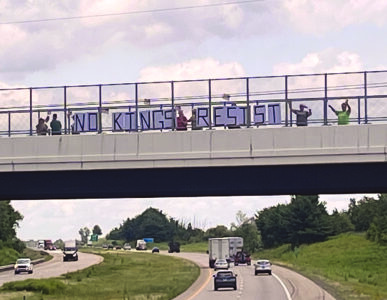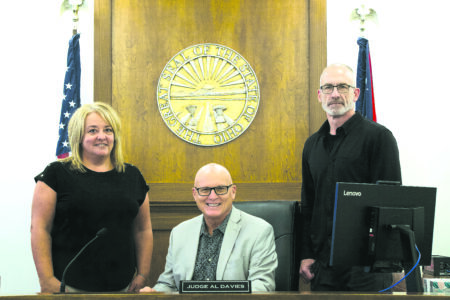Sen. Brown introduces ‘Direct Support for Communities Act’
Says legislation would provide ‘flexible’ relief

SHERROD BROWN
MARTINS FERRY — U.S. Sen. Sherrod Brown introduced legislation he hopes will provide direct relief to communities that have lost revenue during the COVID-19 pandemic.
During a press conference held via telephone Wednesday, Brown, D-Ohio, said his proposed Direct Support for Communities Act would give money directly to cities, townships, villages and counties with budgets that are struggling because of the pandemic.
Brown said the act coincides with President Joe Biden’s new American Rescue Plan that includes $350 billion in state and local funding.
Brown said he does not yet know the exact allocations his bill would provide for local governments, but a formula based on population would be used. He noted 70 percent would go to cities, townships, villages and counties and the rest to states.
The states would be required within 30 days to allocate the funding to other areas that may not otherwise qualify for federal funding.
Brown said throughout the pandemic he has talked to local officials across the state who all tell him the same thing: “They need more resources from the federal government,” he said.
This money is also meant to help municipalities help their residents — those who are facing water shutoffs, evictions and more.
Brown said he did not believe the act of providing federal funding directly to local governments would become a permanent fixture, that this would just be emergency funding because of the pandemic. He acknowledged states have cut back on their funding to local governments in recent years, however.
He added the act would still provide accountability, but more flexibility compared to the original Coronavirus Aid, Relief, and Economic Security Act funding provided to governments.
The CARES Act funding required direct ties to COVID and included strict deadlines as to when a municipality had to have their funding encumbered and spent.
Locally, villages and cities spent their money on replacing furniture and flooring that could be more easily cleaned, new vehicles so workers could drive separately, computers or iPads to allow government bodies to hold virtual meetings instead of gathering in person, cleaning supplies, masks, gloves and other personal protective equipment, and to cover the cost of paid sick days for employees who had to quarantine or who became ill with the virus.
Municipalities were also permitted under the CARES Act to use money for grants to groups such as food pantries or provide relief to those that need help paying for utilities. Though many local municipalities did not allocate money in that direction, Pultney Township did give grants to struggling businesses with money it had left over.
Some municipalities are still waiting for the vehicles or furniture ordered with CARES Act money to be made and to arrive. The suppliers became overwhelmed not only with new demand, but they also were dealing with COVID-related issues of their own.
Some local agencies such as the Community Action Commission of Belmont County that received CARES Act money helped people directly with their utility and rent bills.
Brown is hoping his legislation is ultimately approved in a bipartisan fashion. He said there is no time to waste, as more than 400,000 people have died from the virus in the United States alone. The time for arguing about relief is past, he said.
“Those days are over. We’re going to deliver for the people,” he said.
In addition to Brown, also on the conference call were Youngstown Mayor Tito Brown and Athens Mayor Steve Patterson, who both expressed support for direct relief funding to municipalities.




